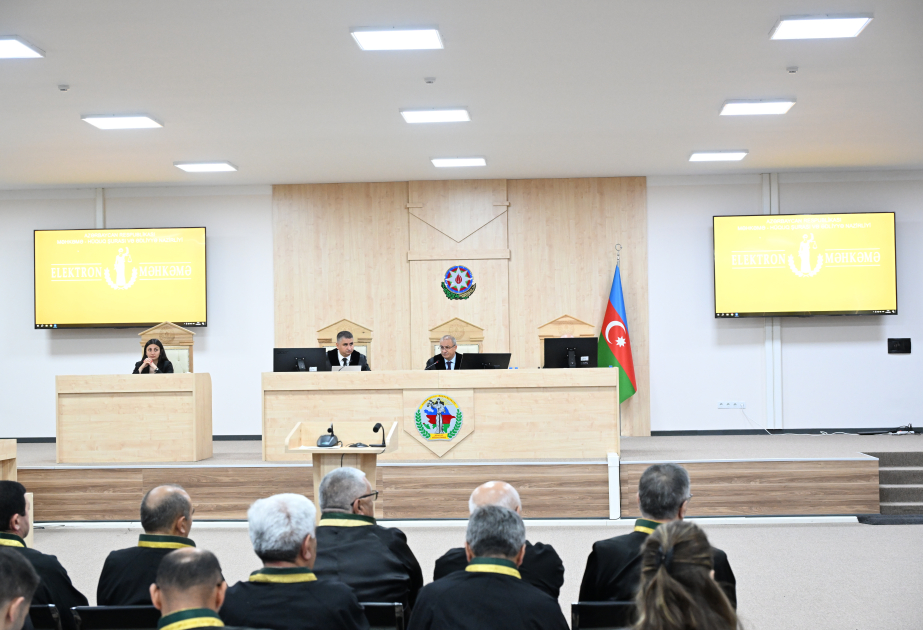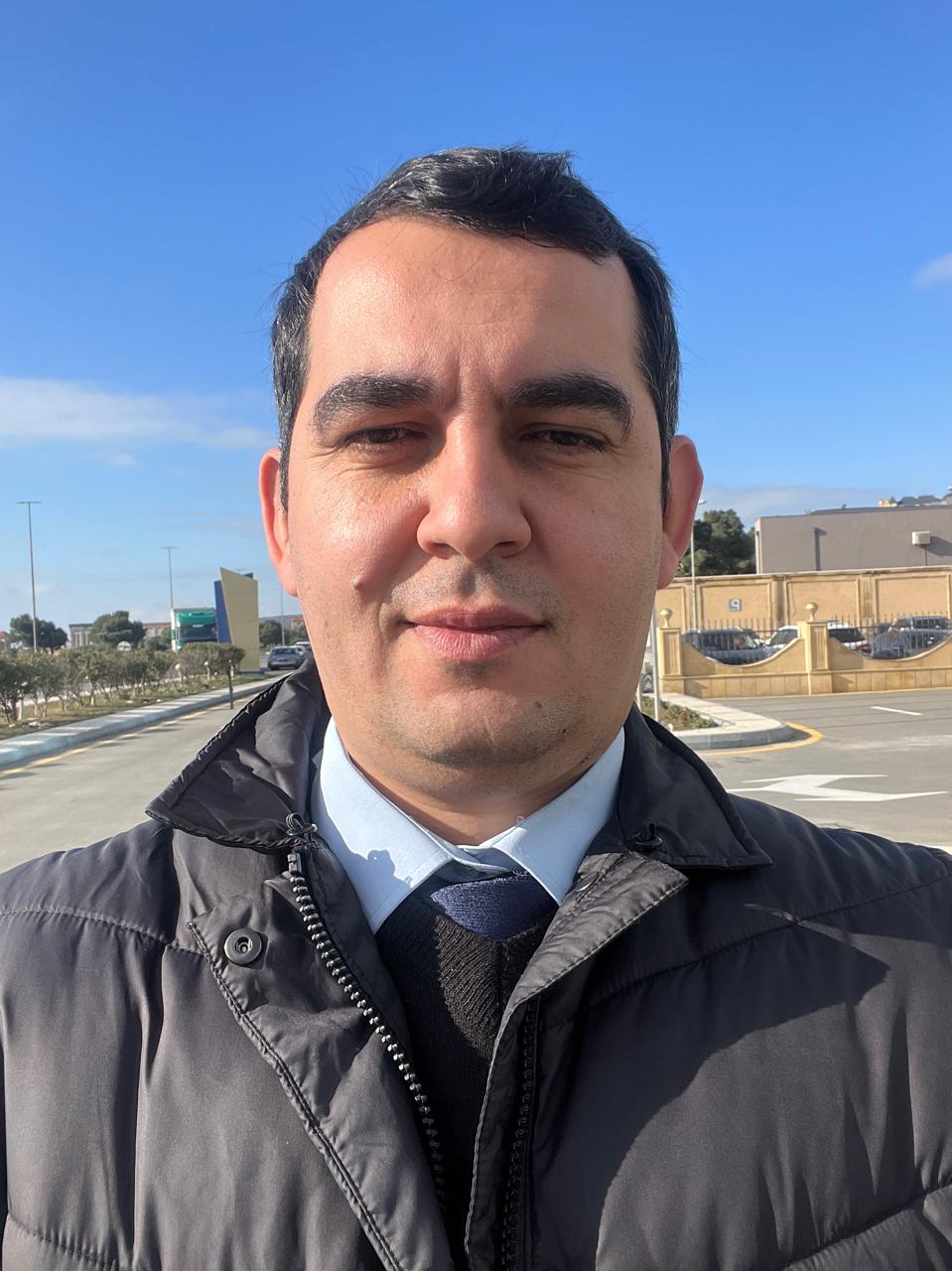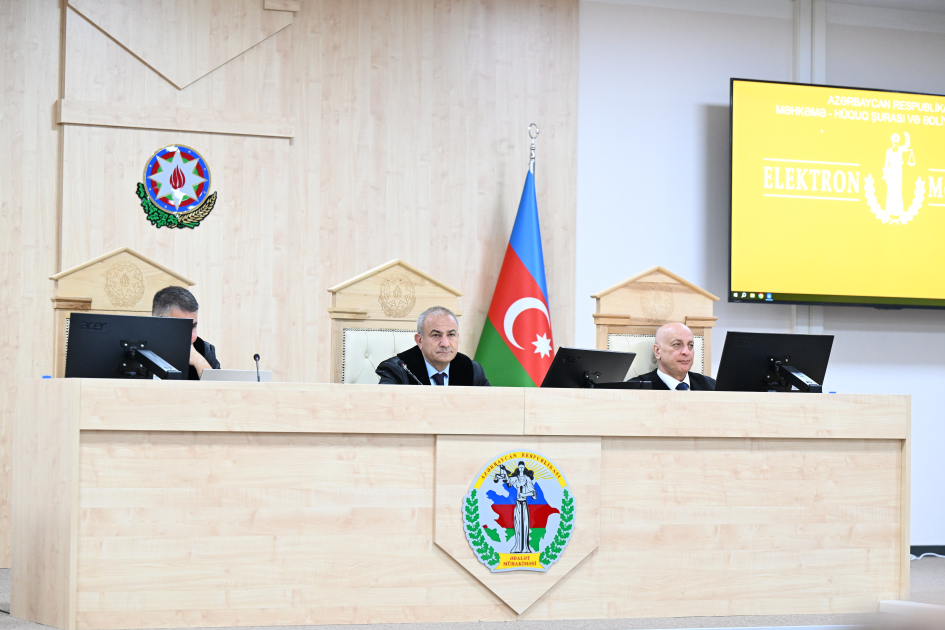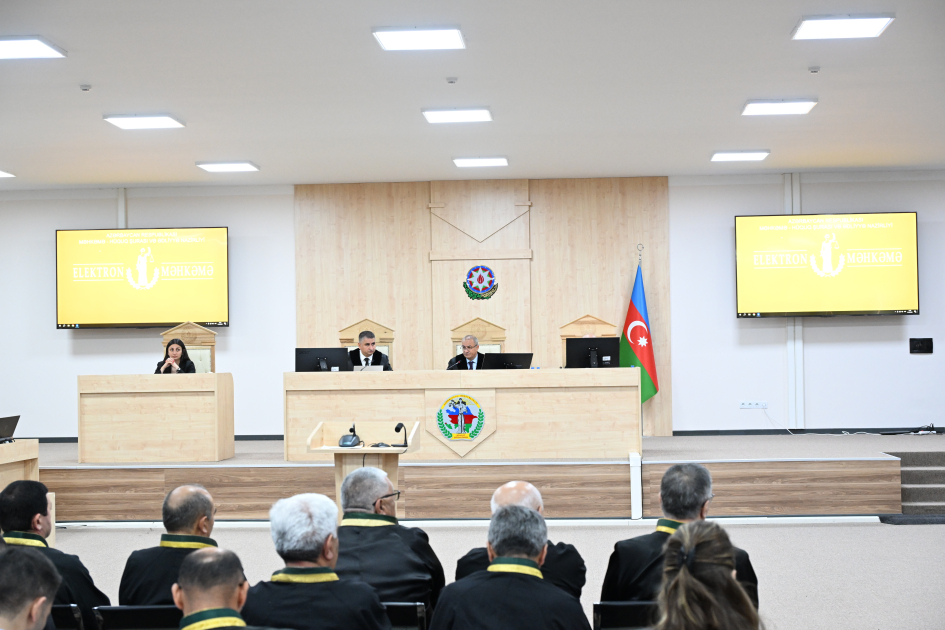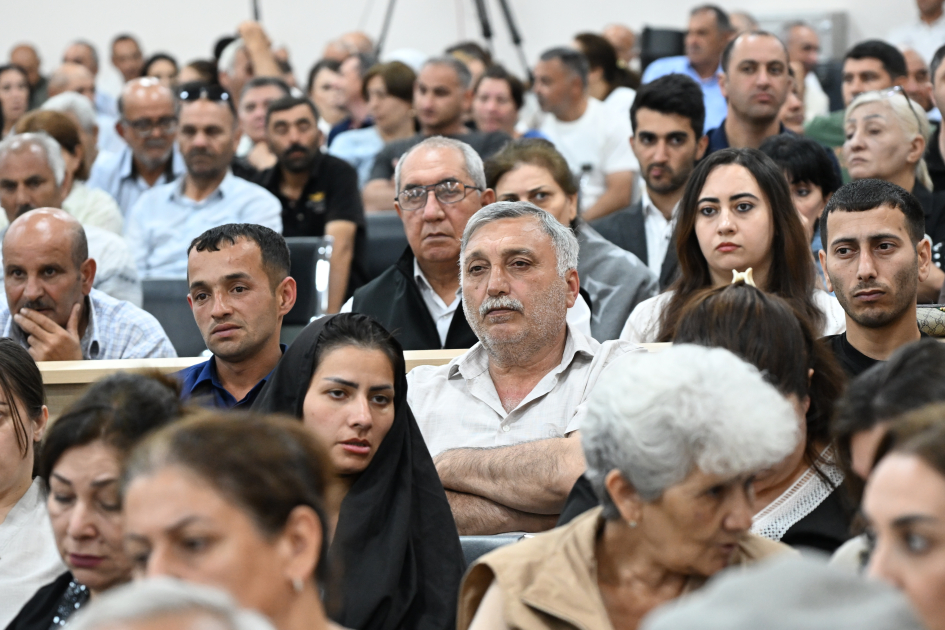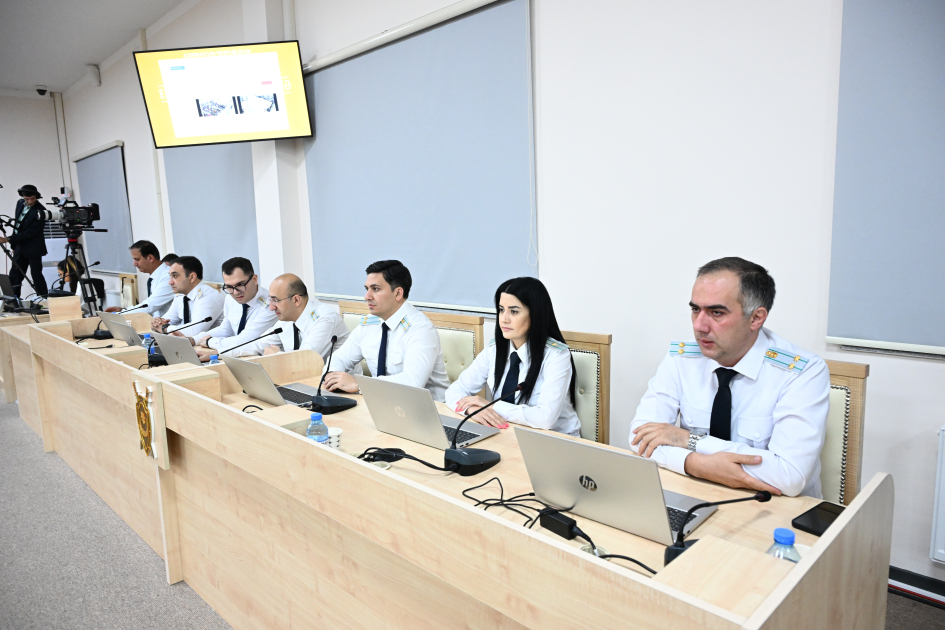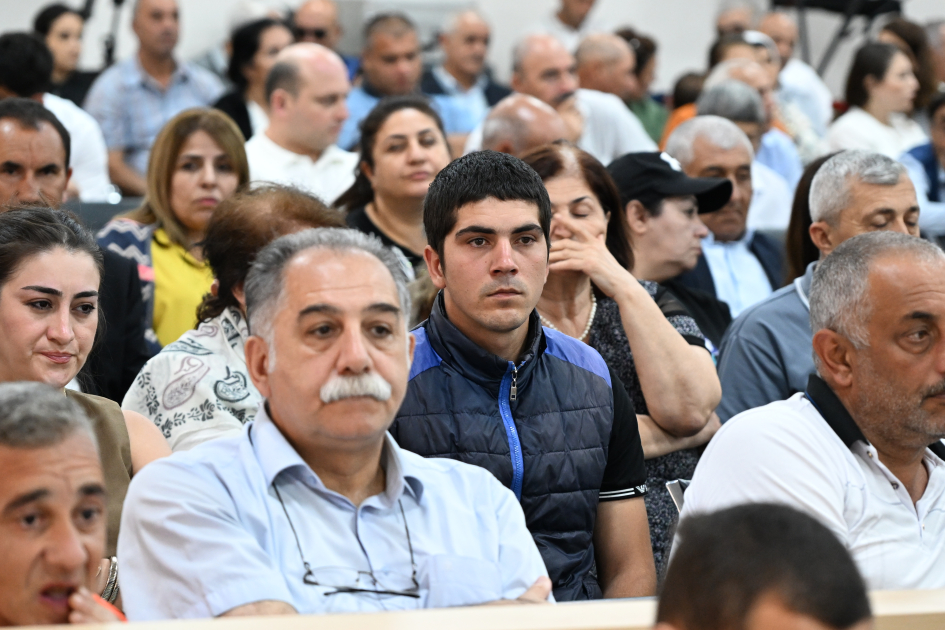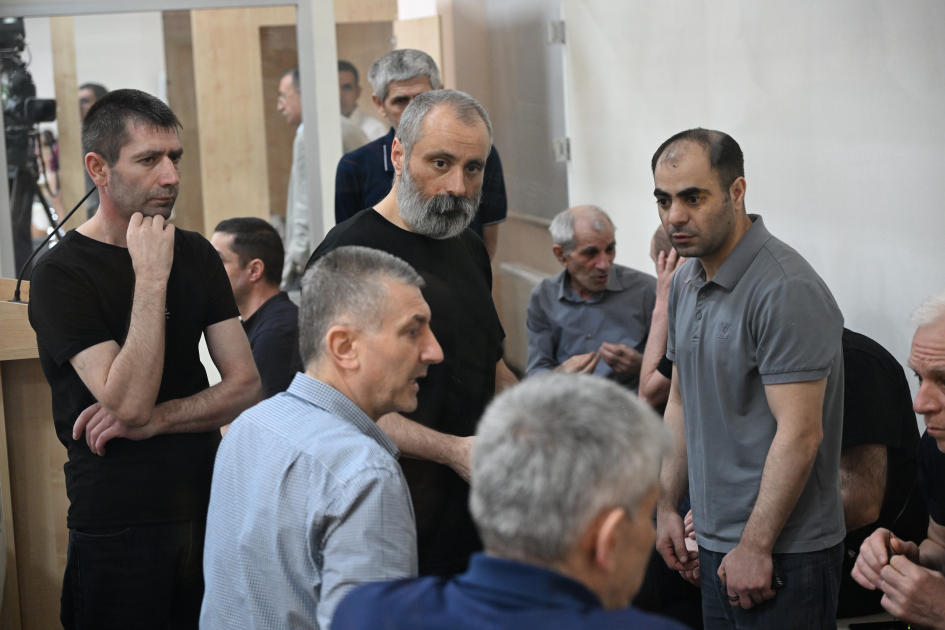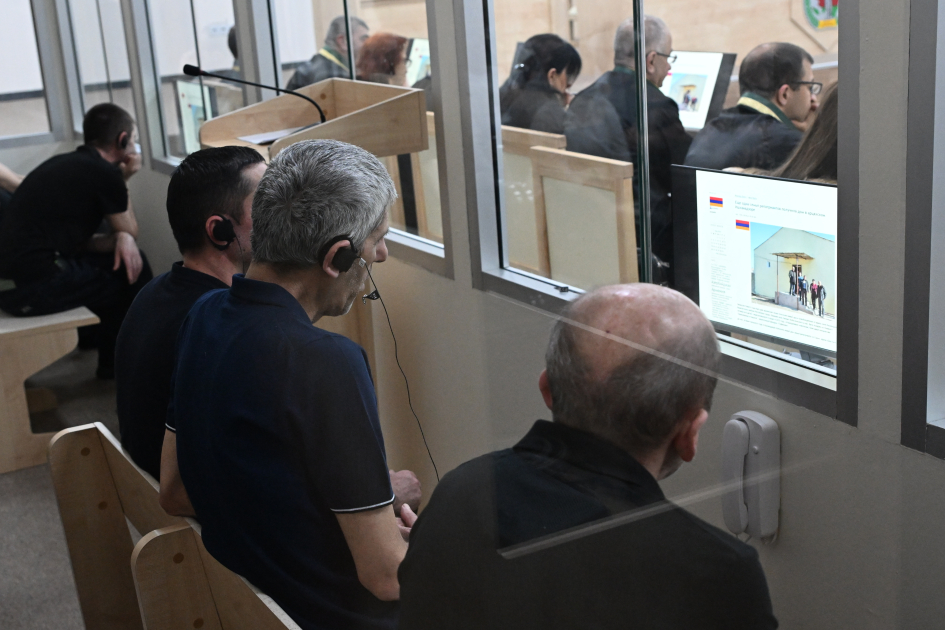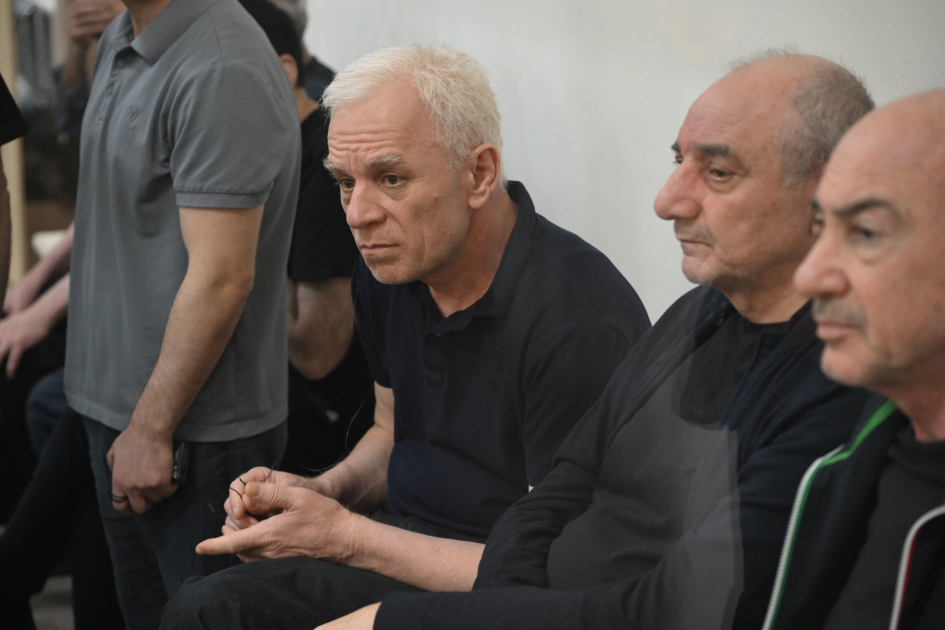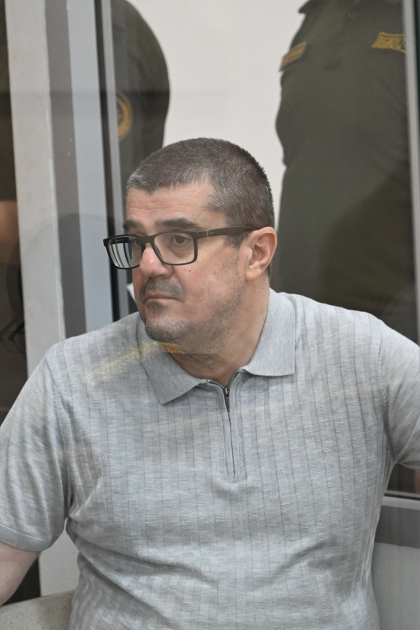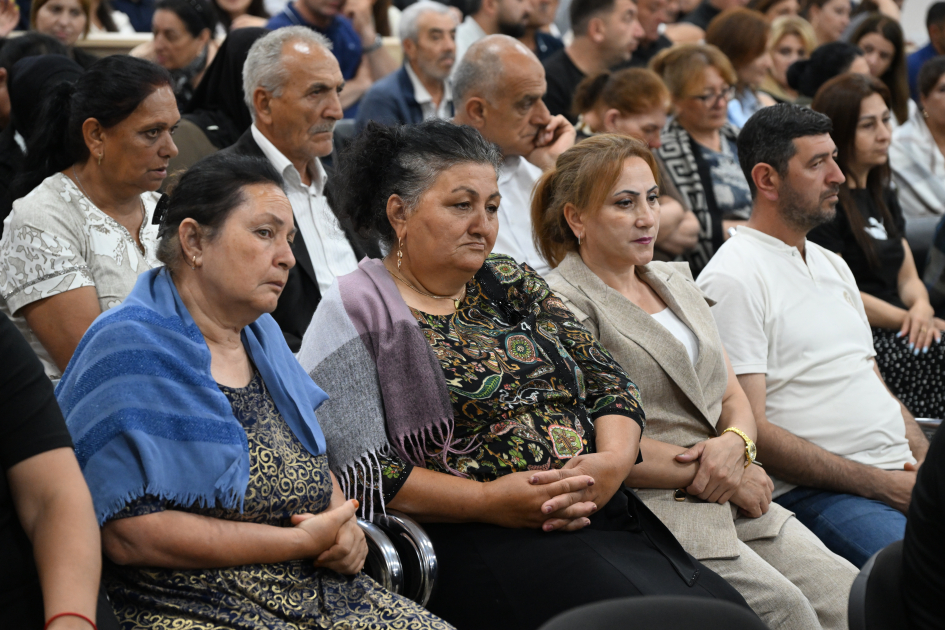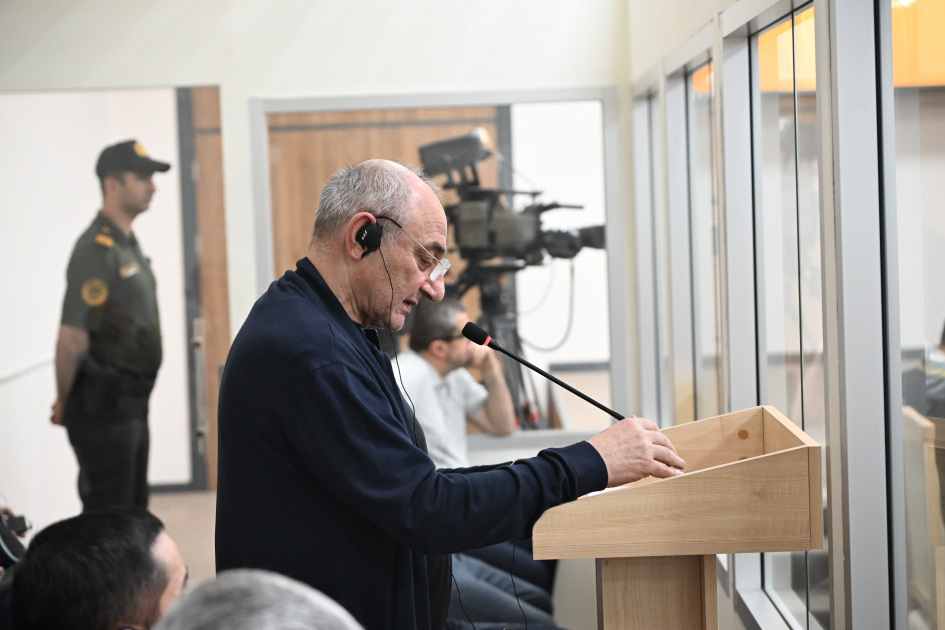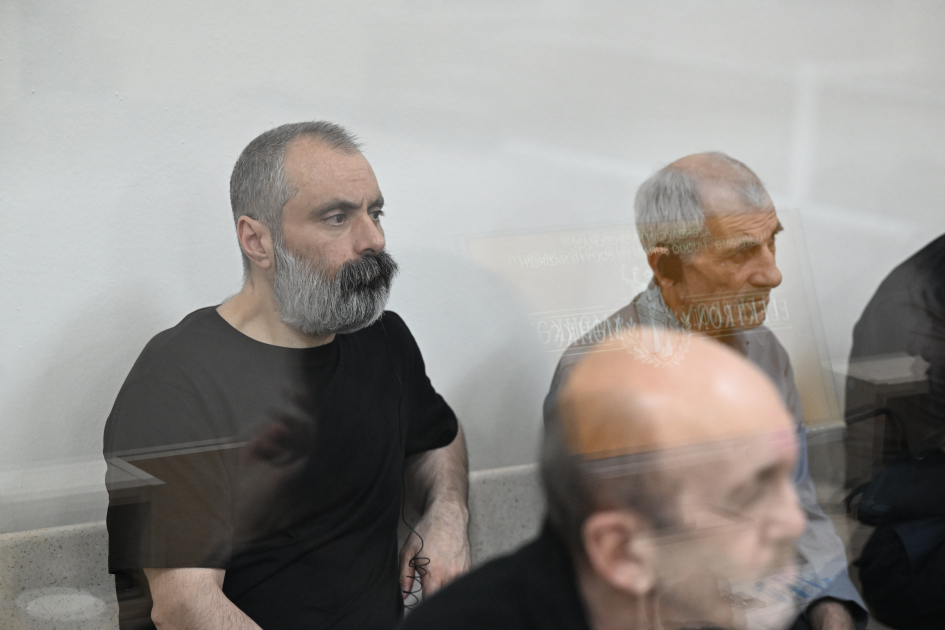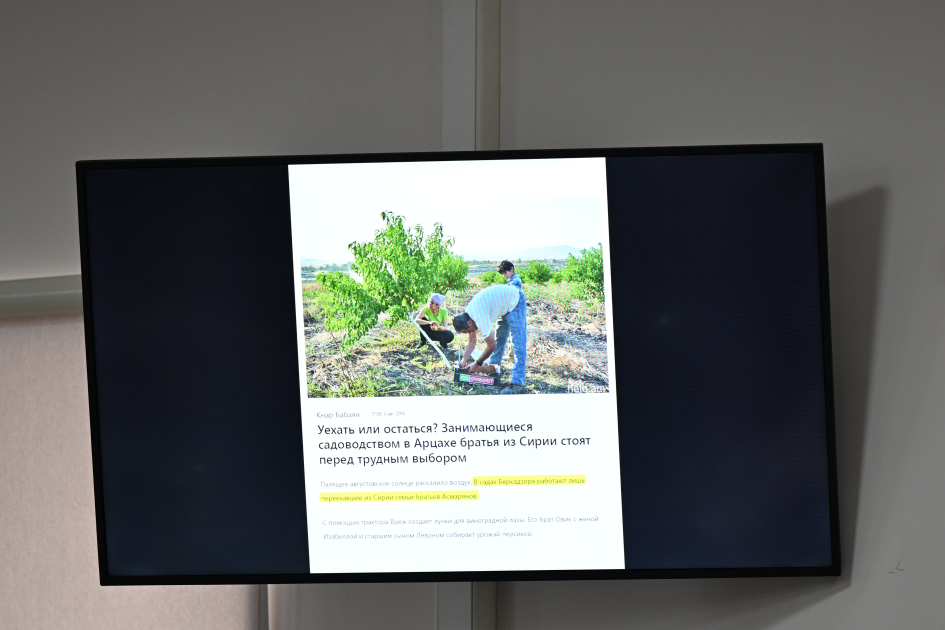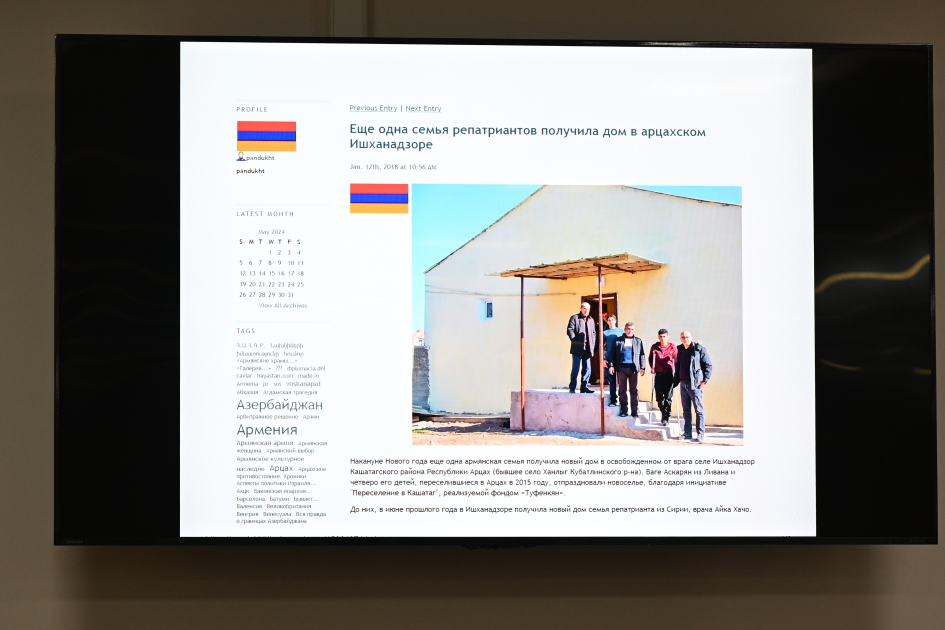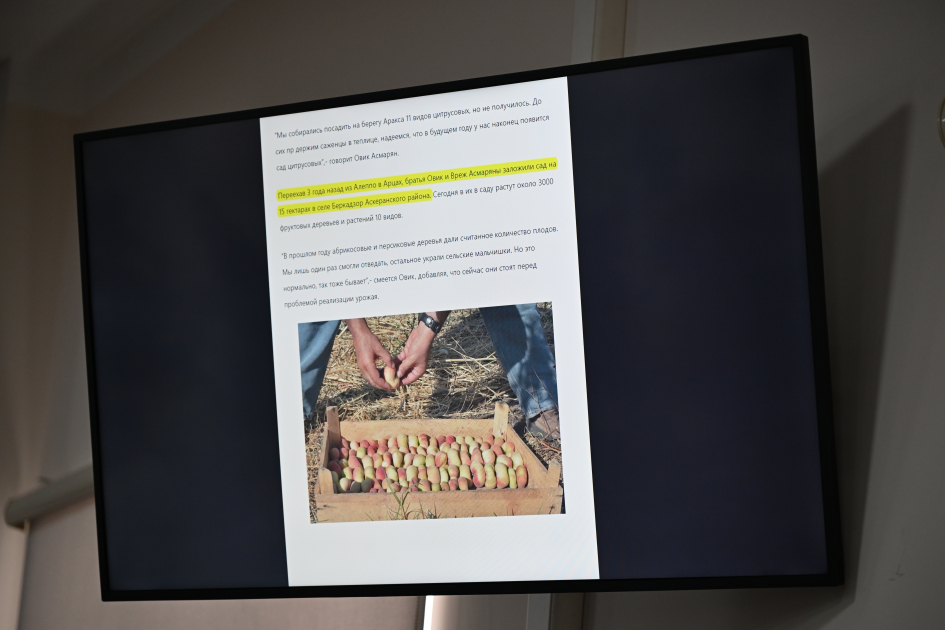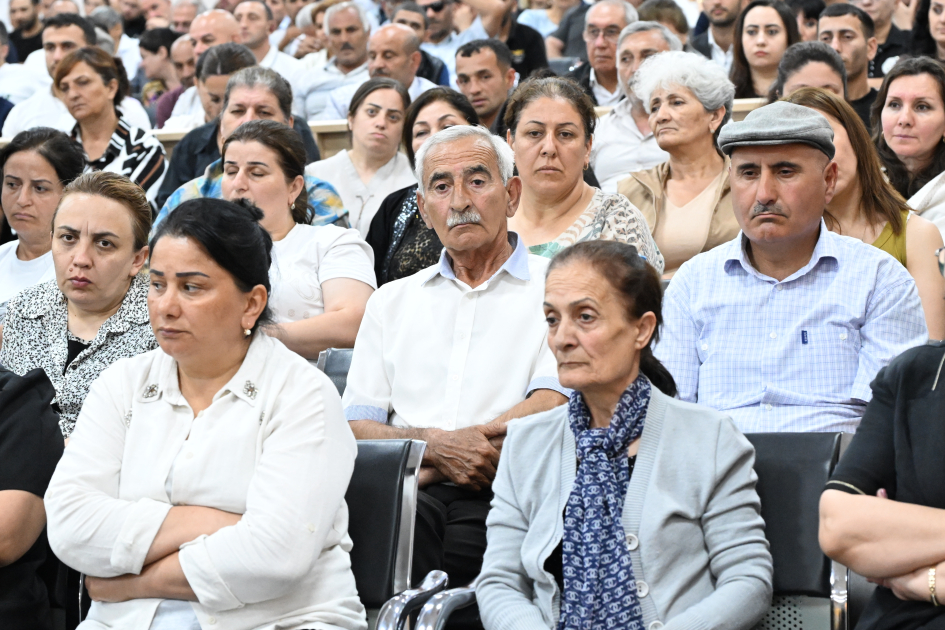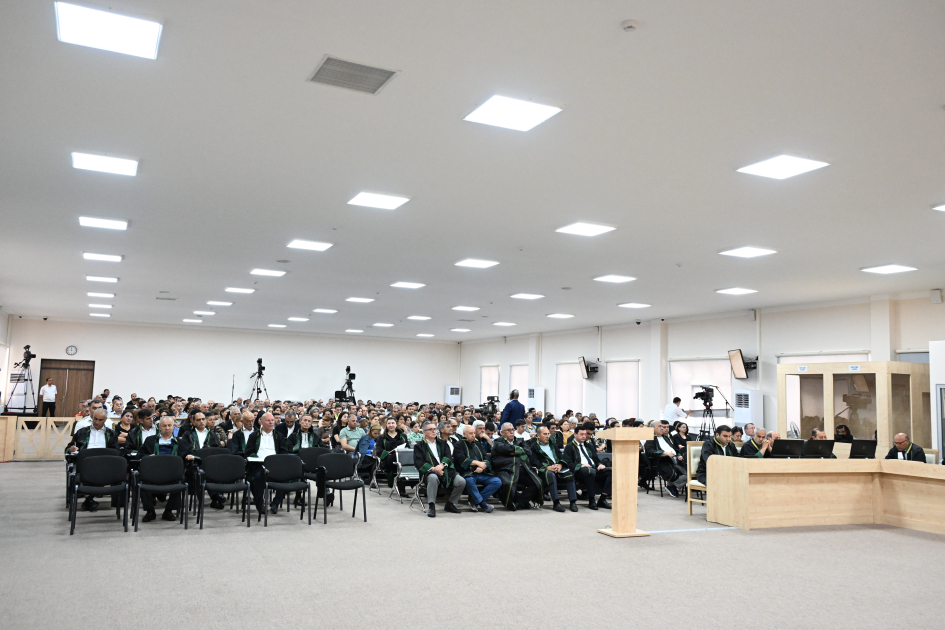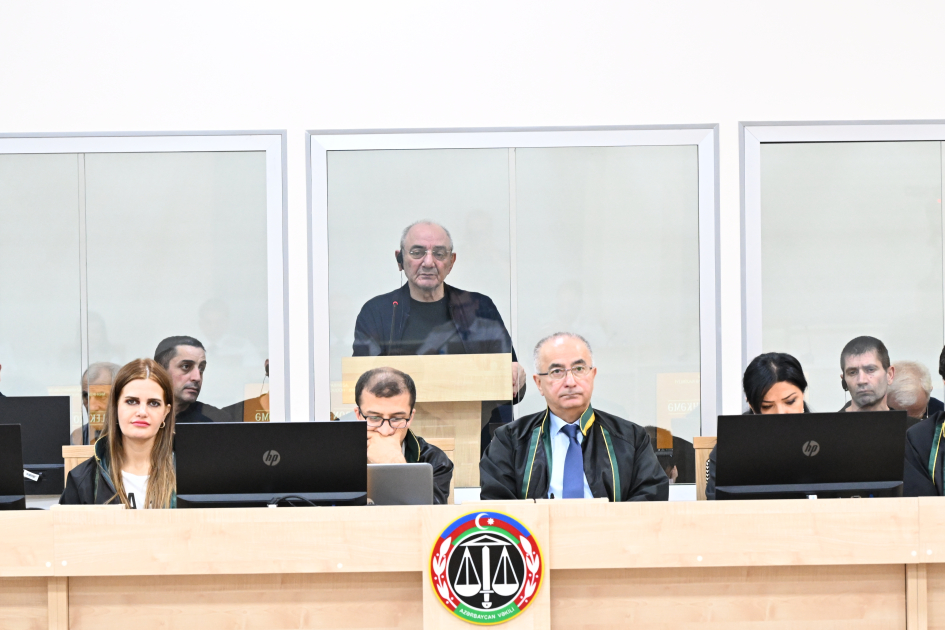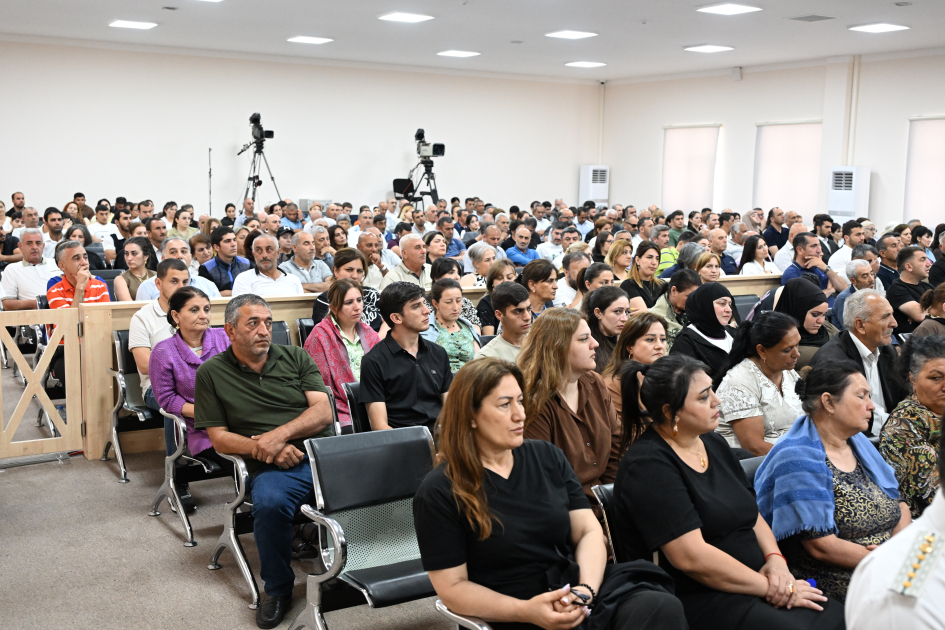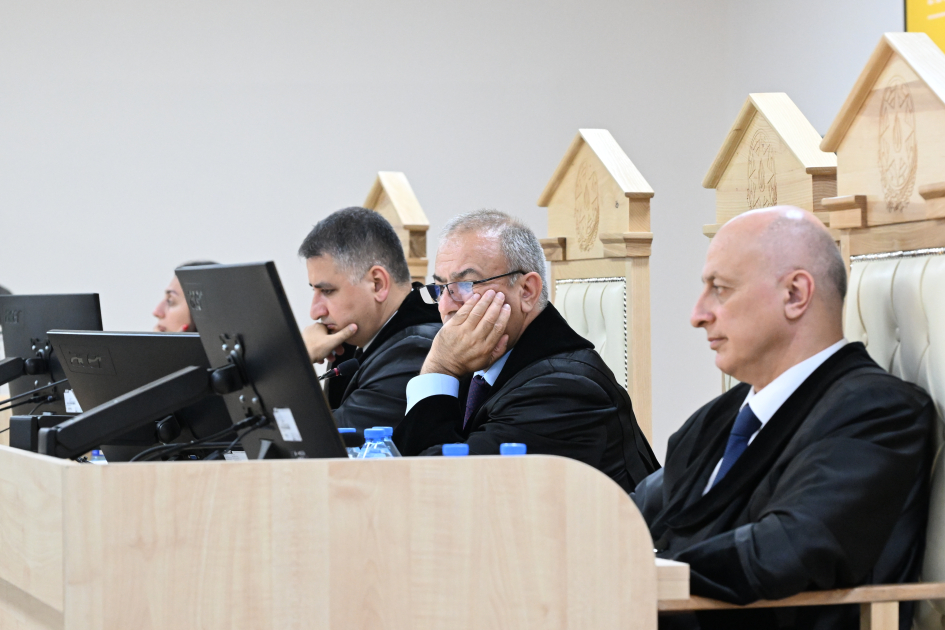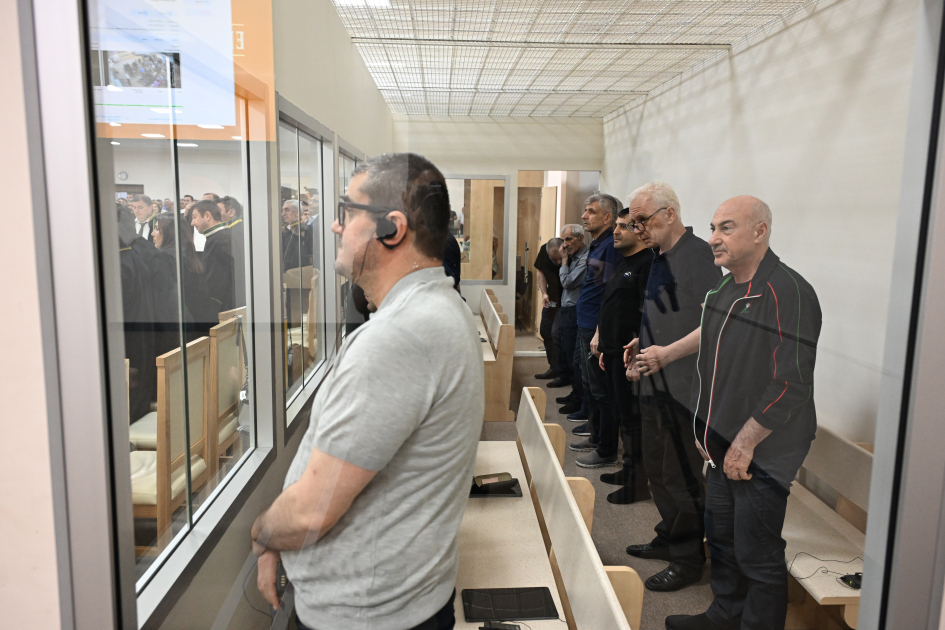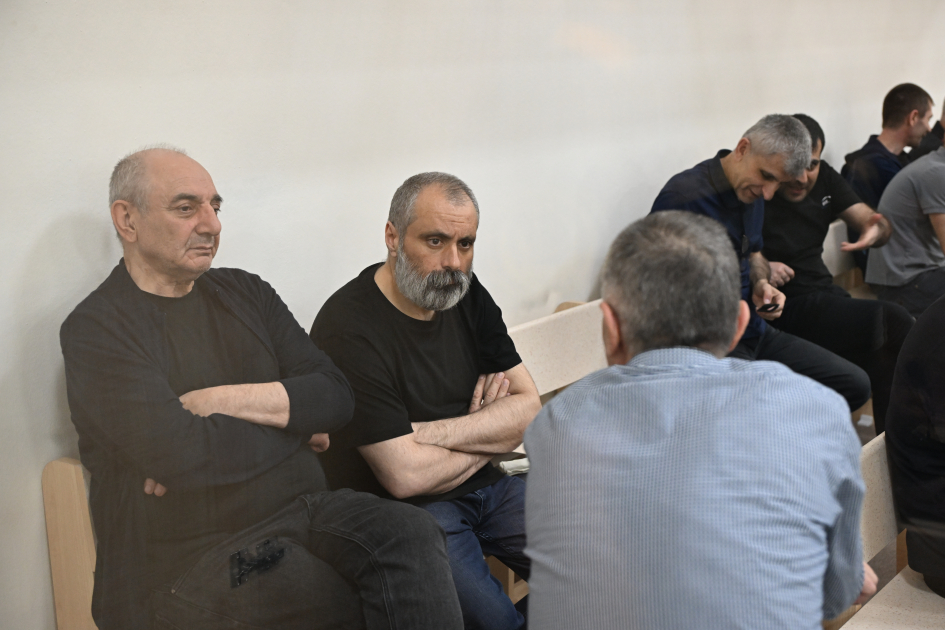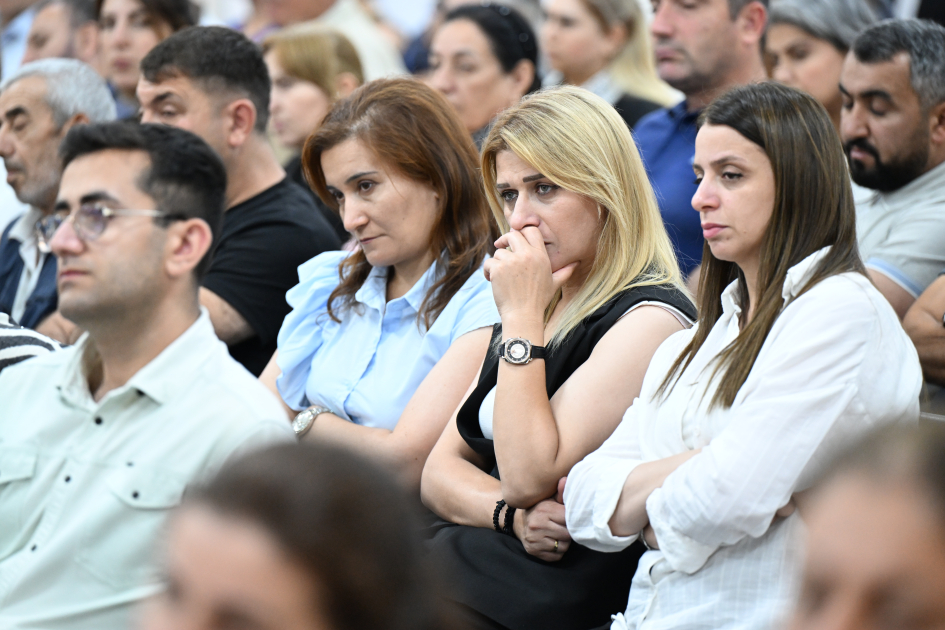BAKU, Azerbaijan, June 21. The open court hearing continued on June 21 in the criminal case against Armenian citizens Arayik Harutyunyan, Arkadi Ghukasyan, Bako Sahakyan, Davit Ishkhanyan, David Babayan, Levon Mnatsakanyan, and others, Trend reports.
They are accused of crimes against peace and humanity, war crimes including the planning and waging of aggressive war, genocide, violations of the laws and customs of war, as well as terrorism, financing of terrorism, forcible seizure of power, forcible retention of power, and numerous other crimes as a result of Armenia's military aggression against Azerbaijan.
The court hearing was held in the Baku Military Court, presided over by Judge Zeynal Agayev, with judges Jamal Ramazanov and Anar Rzayev (reserve judge Gunel Samedova). Each defendant was provided with an interpreter in their native language and legal counsel for their defense.
The defendants, their lawyers, some of the victims, their legal successors and representatives, as well as the state prosecutors, were present at the hearing.
During the court session, Bako Sahakyan, who served as the "head" of the self-proclaimed entity established in the territories of Azerbaijan formerly occupied by Armenia between 2007 and 2020, was asked further questions. Answering questions from Tugay Rahimli, Assistant to the Prosecutor General for Special Assignments, Sahakyan confirmed that he was previously a member of the "Hayastan" All-Armenian Fund (established in 1992 by decree of Armenian President Levon Ter-Petrosyan—ed.).
He stated that representatives of the Armenian government and the "leaders" of the self-proclaimed entity were members of the fund.
The defendant pointed out that Armenians living in various countries around the world, as well as Armenian businessmen, made donations to the fund. "Events were held annually on the radio in Europe and on television in America. Funds were raised during these events," he added.
Sahakyan stated that a portion of the funds raised was spent on various projects in Armenia and the self-proclaimed entity (infrastructure, healthcare, education). He also revealed one of the projects undertaken by the fund, stating that two roads from Armenia to Khankendi were built with funds from the fund. These are the Yerevan-Gorus-Khankendi and Yerevan-Basarkechar-Khankendi highways.
Answering a prosecutor's question, Sahakyan also confirmed that military equipment from Armenia was brought along these highways to the formerly occupied territories of Azerbaijan. It was stated that part of the fund's money was also spent on illegal settlements in the formerly occupied territories of Azerbaijan.
During the continuation of the court proceedings, it was proven that illegal settlement was carried out in the territories of Azerbaijan formerly occupied by the Armenian armed forces.
At the same time, a number of documents on illegal settlement in the formerly occupied territories were examined, including documents received from the Ministry of Defense of the Republic of Azerbaijan, the Foreign Intelligence Service, and the State Security Service, which were added to the investigation materials.
The documents confirmed that the majority of the people illegally settled in the formerly occupied territories of Azerbaijan were citizens of Syria and Lebanon, as well as some other countries. These territories include the Lachin, Kalbajar, Zangilan, and Gubadli regions of Azerbaijan and other areas. Copies of passports proving that the illegally settled persons were born in Syria, Lebanon, and other countries were also displayed in court.
In video material prepared by Armenians and examined in court, a person speaking said that he was a chef, that he came from Beirut, and said, "I came from Beirut. I came to Karabakh through Armenia. My name is Tony Hajar. I came and saw that it was very good here. They gave us a house. There are enough opportunities here to work."
In another video, Elik Harutyunyan, the "representative of the executive power" of Shusha, states that the local "government" (referring to the self-proclaimed regime—ed.) gave the Tony Hajar family temporary housing and pays their utility bills. In the coming days, the "government" will give the Hajar family a house.
The "representative" notes that after living there for 10 years, the house will become their private property.
According to the next document examined, the self-proclaimed regime approved a 10-year program related to the illegal settlement plan in 2001. It indicated the goals and geographical areas of the illegal settlement. According to this project, 10,000 apartments, 200 schools, and other public facilities were to be built, and water lines, roads and other infrastructure were to be constructed. It was noted that the "Tufenkian" Foundation began operating in the formerly occupied territories of Azerbaijan in 2003. The main goals of the project were "settlement and economic development." Approximately US$4 million was invested for this purpose.
In response to the prosecutor's questions, Sahakyan said that citizens of Syria and Lebanon, as well as some citizens from other countries, were brought and settled in the formerly occupied territories of Azerbaijan.
Sahakyan stated that the "Ministry of Social Security" of the self-proclaimed entity was engaged in these activities.
"Previously, the 'State Migration Service' was under the control of the 'Ministry of Social Security.'" But later this structure was separated. This project was strategically important to us. Because after the First Karabakh War, the population decreased sharply," he added.
Sahakyan further noted, "These projects were not so attractive that people would eagerly come, accept them, and get involved in these projects. There were people who came, got acquainted with the area, and then decided not to stay here (not to settle). Because for any family, there are certain reasons for making such a decision. There must be infrastructure, healthcare, and schools."
He also admitted that privileges were given to the people brought in for illegal settlement, and a number of incentive measures were implemented in relation to them. These included various compensations, tax breaks, etc.
According to the defendant, there were places in the territory of the self-proclaimed regime where one person lived per square kilometer. He also stated that the project was not successfully completed. He added that although they wanted to increase the population to 200,000, this was not possible.
Sahakyan also confirmed that trees were cut down in the formerly occupied territories of Azerbaijan, saying, "Wherever it was necessary to cut down forests, this could only be done with the permission of the relevant 'ministry officials.'" But I cannot say a specific type of tree."
He also admitted that the trees were cut down by specialized companies to be sold to winemaking companies: "They made barrels of various sizes."
According to Sahakyan, some of the cut trees were used in the self-proclaimed regime, and some were sent to Armenia for use.
The court hearing will continue on June 23.
15 defendants of Armenian origin are accused in the criminal case on numerous facts of crimes committed during the aggressive war waged by the Armenian state, including the aforementioned criminal association, on the territory of Azerbaijan in violation of domestic and international legal norms, for the purpose of military aggression against Azerbaijan, created under the direct leadership and participation of the Armenian state, officials of its state institutions, its armed forces and illegal armed formations, their written and verbal orders, instructions and guidelines, material, technical, and personnel support, centralized management, as well as under the strict control, as well as under the leadership, direct and indirect participation of Robert Sedraki Kocharyan, Serzh Azati Sargsyan, Vazgen Mikaeli Manukyan, Vazgen Zaveni Sargsyan, Samvel Andraniki Babayan, Vitali Mikaeli Balasanyan, Zori Hayki Balayan, Seyran Musheghi Ohanyan, Arshavir Surenovich Garamyan, Monte Charles Melkonyan and others.
The said persons, i.e. Arayik Vladimiri Harutyunyan, Arkadi Arshaviri Ghukasyan, Bako Sahaki Sahakyan, Davit Rubeni Ishkhanyan, David Azatini Manukyan, Davit Klimi Babayan, Levon Henrikovich Mnatsakanyan, Vasili Ivani Beglaryan, Erik Roberti Ghazaryan, Davit Nelsoni Allahverdiyan, Gurgen Homeri Stepanyan, Levon Romiki Balayan, Madat Arakelovich Babayan, Garik Grigori Martirosyan, Melikset Vladimiri Pashayan, are being charged under Articles 100 (planning, preparing, initiating and waging a war of aggression), 102 (attacking persons or organizations enjoying international protection), 103 (genocide), 105 (extermination of the population), 106 (enslaving), 107 (deportation or forced displacement of the population), 109 (persecution), 110 (enforced disappearance of people), 112 (deprivation of liberty contrary to international law), 113 (torture), 114 (mercenary service), 115 (violation of the laws and customs of warfare), 116 (violation of international humanitarian law during armed conflict), 118 (military robbery), 120 (intentional murder), 192 (illegal entrepreneurship), 214 (terrorism), 214-1 (financing terrorism), 218 (creation of a criminal association (organization)), 228 (illegal acquisition, transfer, sale, storage, transportation and possession of weapons, their components, ammunition, explosives and devices), 270-1 (acts threatening aviation security), 277 (assassination of a state official or public figure), 278 (forcible seizure and retention of power, forcible change of the constitutional structure of the state), 279 (creation of armed formations and groups not provided for by law) and other articles of the Criminal Code of the Republic of Azerbaijan.

